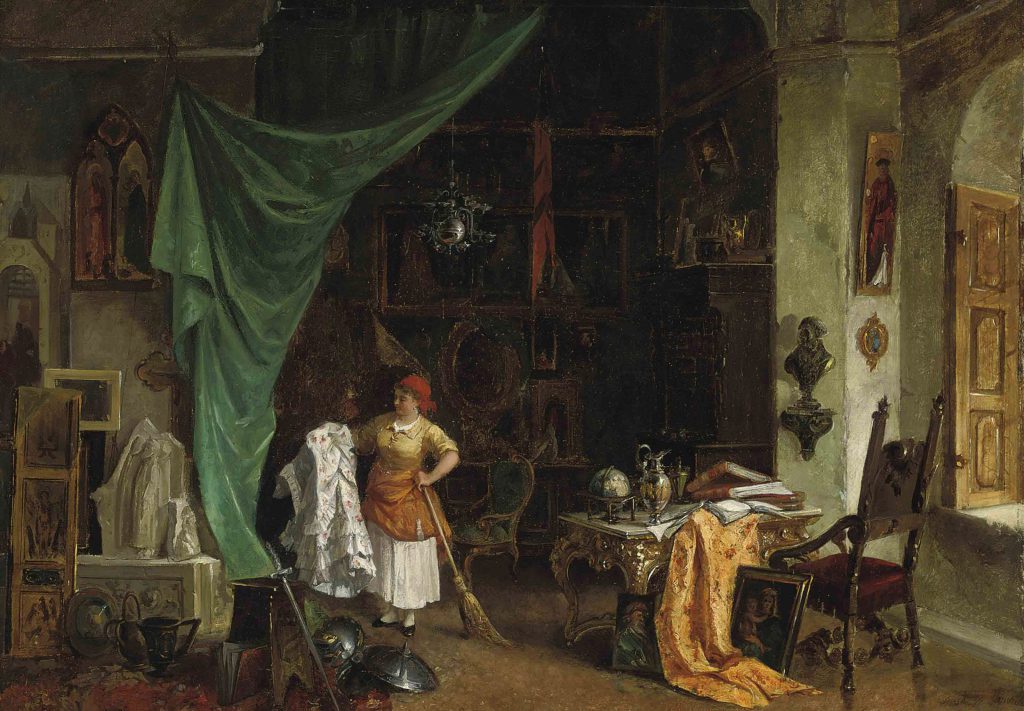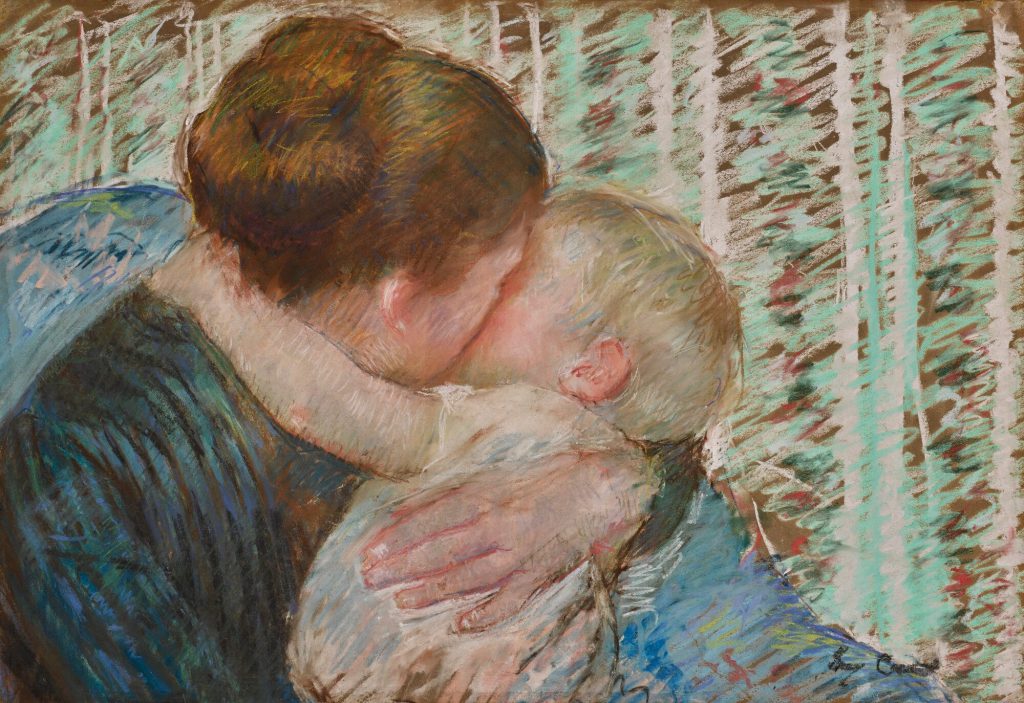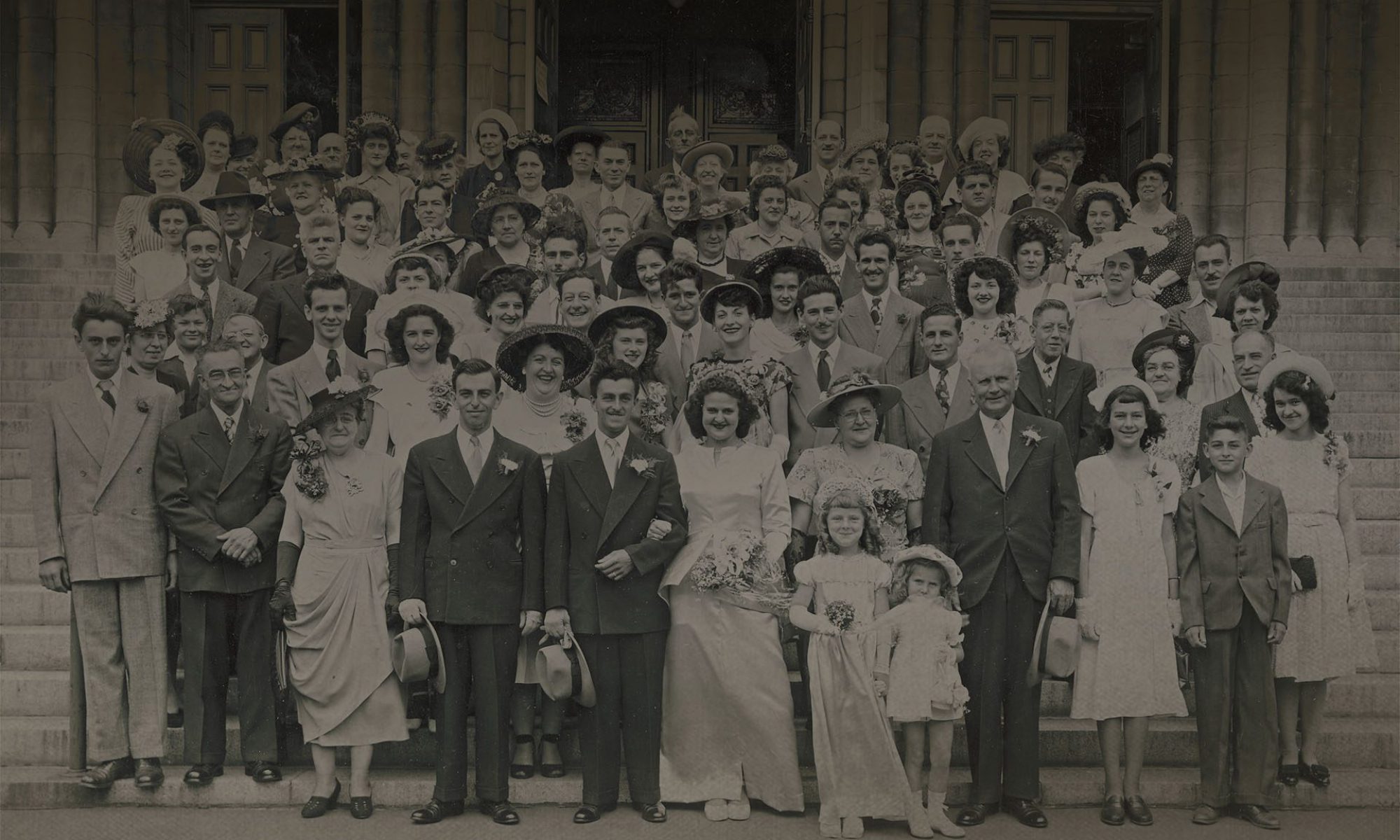This post is also available in: Français

In my first article series on this blog ”The omission of women in family trees”1, I talked about the place of women in genealogy, exploring the reasons and the consequences of their exclusion from most research. For this new series, I wanted to reverse the perspective and talk about how women practice genealogy. Why do they do genealogical research? What can they accomplish with their investigations? What place does gender take in their practices? Can genealogy be a source of feminist emancipation for women?
Individual genealogical practices are often related to one’s family. We practice genealogy to find our ancestors, to share our discoveries with our loved ones and to bequeath to future generations a better knowledge of their past. Therefore, it seemed logical to start by trying to see if genealogy could be a part of women’s traditional role in a family : care.

What does ‘’care’’ mean ?
The word ‘’care’’ has first been popularized by Carol Gilligan, who talked more precisely about the ethics of care. Her work put to light the particular bases of the moral and ethical judgement of women and showed it was more contextual and anchored in the maintenance of human relationships as well as in the interdependence of individuals (see Gilligan, 2008 [1982]). The concept of ‘’care’’ eventually superseded the philosophical and psychological questions of Gilligan. Contemporary feminist theories often refer to ‘’care work’’. Care work is a set of concrete (or material) and less visibles (or more immaterial) tasks which aim to take care of others and the world around us.
Those tasks are usually (at least, in our patriarchal societies) attributed to women. Joan Tronto, a researcher who is interested in care, defines the concept this way : ‘’a species activity that includes everything that we do to maintain, continue, and repair our ‘world’ so that we can live in it as well as possible. That world includes our bodies, our selves, and our environment, all of which we seek to interweave in a complex, life-sustaining web’’ (Fisher and Tronto, 1990 : 40).
The concept thus includes housework (maintaining the household, planning, preparing meals, purchasing household goods, educating the children, etc (see Robert, 2017 : 15)), but also a way to perceive the world and others and a way to be preoccupied by them, to be aware of the responsibility we have towards them and to care about their wellbeing (Garrau and Le Goff, 2010 : 5). Examples would be listening to and empathizing with our loved ones, adapting to their situations to help them, giving them little marks of affection to maintain our relationship, etc.
Care work is also part of the famous public-private divide that I discussed in my previous articles (particularly here). To prevent women from accessing the public sphere, where the decisions were made and power was held, the patriarchal system has historically relegated them to the private sphere, particularly by assigning them to care work within their families.
Genealogical research and care practice
Genealogy can also be a form of care work. In her doctorate thesis, ‘’ Family webs : the impact of women genealogy research on family communication ’’, Amy M. Smith (2008) interviewed 22 female genealogists to understand how their genealogical practices fit into their family environments as well as in the patriarchal society we live in. Considering the results of her interviews, Smith names care as an important component to women’s genealogical practices. She explains that genealogical research plays a key role in the construction of the individual identities of family members as well as of the identity of the family as a whole. Genealogy can also be very useful in healing intergenerational traumas, and to more serenely live through certain losses, as it can help understand the history of our family. Taking care of our family’s genealogy can therefore be a way to take care of its individual members and the relationships that unite them.
Does this mean that genealogy necessarily confines women? Not at all! Care work is not oppressive in itself : feminists rather criticize the ways in which it is devalued, the absence of recognition for the women who do it, its instrumentalization to keep women away from the public sphere and its uneven distribution between men and women.

Care and emancipation
Care is otherwise revendicated as a part of feminist emancipation. Some theoriticians consider care as fundamentally subversive, because it ”shows the importance of valorizing what women valorize, as opposed to allowing them to access what men valorize”2 (Savard-Laroche, 2020 : 63). Some even go so far as to say that ”care is neither more nor less than a coherent response, both realistic and visionary, to the pitfalls of the dominant paradigms” (Bourgault et Perreault, 2015 : 14). The idea of taking care of our environment and of others, of not stigmatizing dependency and vulnerability but to put forward the interdependence between humans can be a way to counter capitalist and colonial ideologies which destroy our environment and valorize autonomy, individuality and independence to the detriment of solidarity.
A genealogical practice anchored in care could therefore, under certain circumstances, contribute to the valorization of care ethics and to a certain feminist emancipation. In her thesis, Amy M. Smith notes that because they take a particular interest in connections between individuals and between families, genealogists can see the interconnection that exists between all human beings (Smith, 2008 : 107). Between this interconnection and the interdependence put forward by care ethics, there is only a small step!
We also need to remember that care is only one aspect of women’s genealogical practices. There are as many relationships to genealogy as there are women practicing it, and they can be emancipatory in numerous ways : that will be the subject of the second part of this article series.
1 By clicking on the links, you can read part 1, part 2 and part 3 of this series.
2 This quote and the one following have been translated by the author of this article.
Bibliography :
Bereni, Laure and Revillard Anne. (2009). « La dichotomie “Public-Privé’’ à l’épreuve des critiques féministes: de la théorie à l’action publique ». In Genre et action publique : la frontière public-privé en questions, Muller, P. and Sénac-Slawinski, R (ed.). Paris : L’Harmattan. p. 27-55.
Bourgault, Sophie and Perreault, Julie. (2015). « Introduction. Le féminisme du care, d’hier à aujourd’hui ». In L’éthique du care. Montréal : Remue-Ménage. p.9-25.
Fisher, Berenice and Tronto, Joan. (1990). ”Towards a Feminist Theory of Care”. In Circles of care, Abel, E. and Nelson, M. (ed.). New York : State University of New York Press, p.36-54.
Gilligan, Carol. (2008 [1982]). Une voix différente : pour une éthique du care. Paris : Flammarion. 284 p.
Garrau, Marie et Le Goff, Alice. (2010). Care, justice et dépendance. Introduction aux théories du care. Paris : Presses Universitaires de France. 160 p.
Robert, Camille. (2017). Toutes les femmes sont d’abord ménagères. Montréal : Éditions Somme Toute. 180 p.
Savard-Laroche, Sophie (2020). Travail et justice du care. (Mémoire de maîtrise). Université Laval.
Smiths, Amy M. (2008). Family Webs: The Impact of Women’s Genealogy, Research on Family Communication. (Thèse de doctorat). Graduate College of Bowling Green State University.


